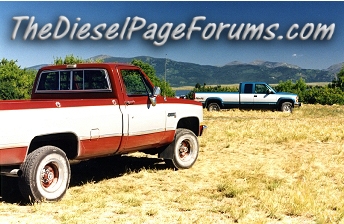How many of you with the 200HP+ horsepower diesel engines from Avant, Peninsular, Diesel Depot (or other engine rebuilders) know what the timing was set at when it was delivered? Please share the numbers if you know)
What makes this question more interesting, is that the rebuilder has to set the timing at a point that still allows them to warranty their work.








 Do hope its right,Am curious as to what possible horsepower might be.
Do hope its right,Am curious as to what possible horsepower might be.


